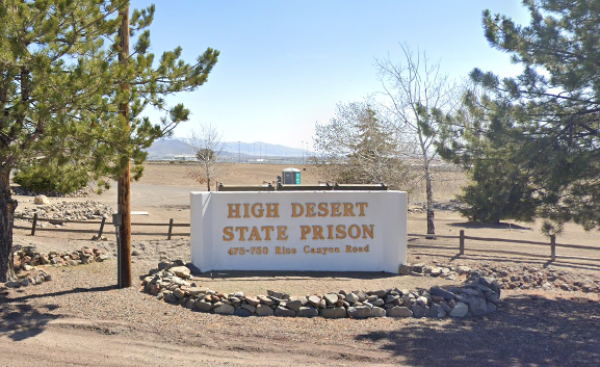
According to AP News, a tragic stabbing incident occurred at High Desert State Prison located at 475-750 Rice Canyon Rd, Susanville, CA 96130.
The California Department of Corrections and Rehabilitation released a statement on Monday, revealing that an incarcerated man was discovered with multiple stab wounds shortly after 8:15 p.m. last Saturday. Efforts were made to save his life, and he was rushed to an outside hospital. However, he succumbed to his injuries a few hours later.
Authorities found an inmate-manufactured weapon at the scene, further substantiating the suspicion that the attack was premeditated. In response, the two suspected inmates, aged 32 and 29, have been transferred to restricted housing while authorities conduct a thorough investigation into their involvement in the suspected homicide.
During the initial stages of the investigation, prison authorities implemented limited movement in the prison yard to ensure the safety and security of the facility. Fortunately, no staff members or other inmates were harmed during the attack.
The victim had been serving his sentence at Susanville since 2011. The prison, located in Lassen County, is a maximum-custody facility that houses approximately 2,500 inmates.
The incident has once again highlighted the ongoing challenges faced by correctional institutions in maintaining the safety of inmates. The California Department of Corrections and Rehabilitation will continue its efforts to ensure the well-being of all incarcerated individuals within the state's prison system.

In light of the recent tragic stabbing incident at High Desert State Prison, we have invited Jason Amala, Esq., a prominent California-based violent crimes attorney, to shed light on the legal options available to victims of violence behind bars. We sat down with Mr. Amala to discuss the potential for civil cases against those responsible for such attacks.
Darla Medina: Thank you for joining us, Mr. Amala. Given your expertise in violent crimes, could you explain what options victims of prison stabbings have when seeking civil justice?
Jason Amala: Thank you for having me, Darla. Victims of prison stabbings do have legal avenues to pursue civil justice. While criminal charges are typically handled by the state, victims can file civil lawsuits against the individuals responsible for the attack, seeking compensation for their injuries and emotional trauma.
Darla Medina: How does the legal process work in such cases?
Jason Amala: Well, it's important to understand that navigating civil cases arising from prison violence can be complex. The first step is to consult with an experienced attorney who specializes in violent crimes. They will evaluate the circumstances of the incident, gather evidence, and determine the liability of the attackers.
Darla Medina: Are there any unique challenges when pursuing civil cases related to prison violence?
Jason Amala: Absolutely. One of the primary challenges is identifying the assets of the responsible individuals. In many cases, inmates may not possess significant financial resources, making it difficult to secure compensation. However, it's crucial to explore all available avenues, including potential liability on the part of the prison administration for inadequate security or negligence.
Darla Medina: Can you provide an example of a successful civil case involving a prison stabbing?
Jason Amala: Certainly. In a notable California case, a victim of a prison stabbing filed a civil lawsuit against both the attacker and the prison administration. The lawsuit alleged that the prison failed to provide adequate security measures and supervision, leading to the victim's injuries. The case resulted in a settlement that provided the victim with compensation for medical expenses, pain and suffering, and ongoing therapy.
Darla Medina: What advice would you give to victims considering a civil case?
Jason Amala: First and foremost, seek legal counsel from an attorney experienced in violent crimes and civil litigation. They can guide victims through the legal process, help gather evidence, and build a strong case. It's crucial to act promptly, as there are strict time limits for filing civil lawsuits. Victims should also prioritize their physical and emotional well-being and seek appropriate support throughout the legal journey.
Darla Medina: Thank you, Mr. Amala, for sharing your insights into seeking civil justice for prison stabbing victims. This information will undoubtedly be valuable to our readers who may find themselves in such unfortunate circumstances.
Sources:
 info@legalherald.com
info@legalherald.com